Exploring Centralization in Collective Robotic Construction
Workshop edit – video production by 6ix Films (Toronto, CA)
Worked hands on with swarms of mobile robots to test autonomy strategies.
WORKSHOP LEADERS

Samuel Leder
Institute for Computational Design and Construction (ICD), University of Stuttgart

Lior Skoury
Institute for Computational Design and Construction (ICD), Chair of Computing in Architectural (CA), University of Stuttgart
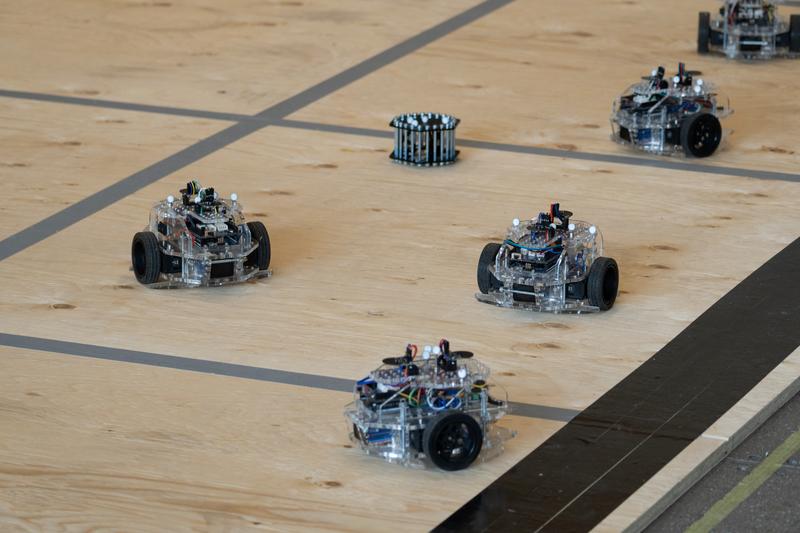
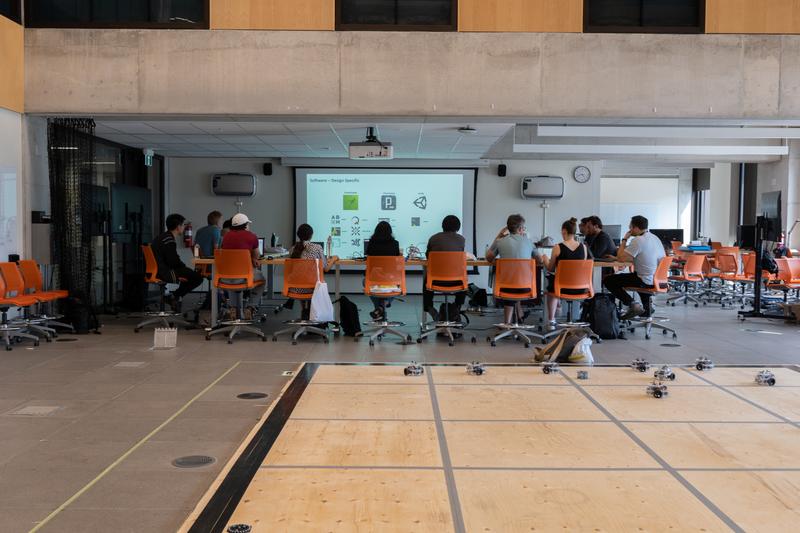
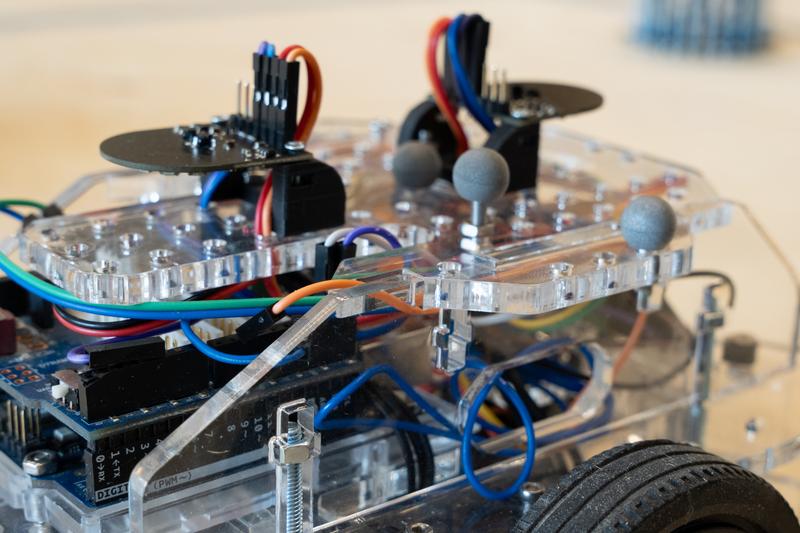

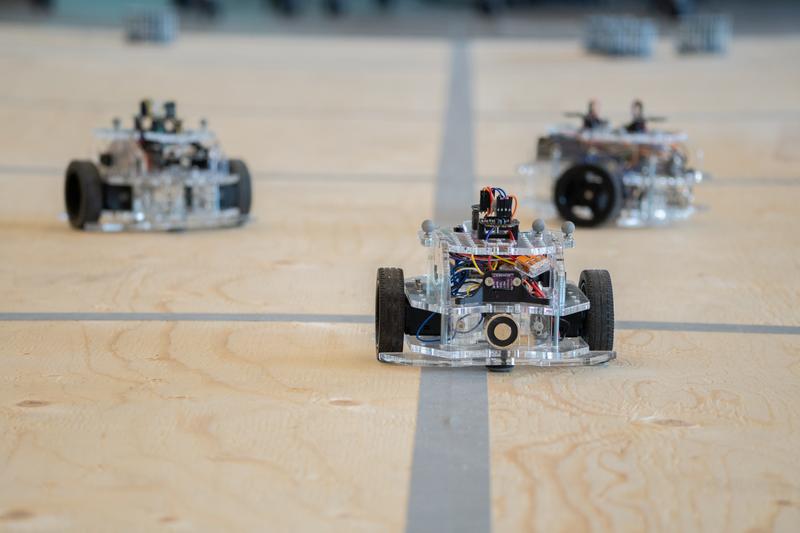
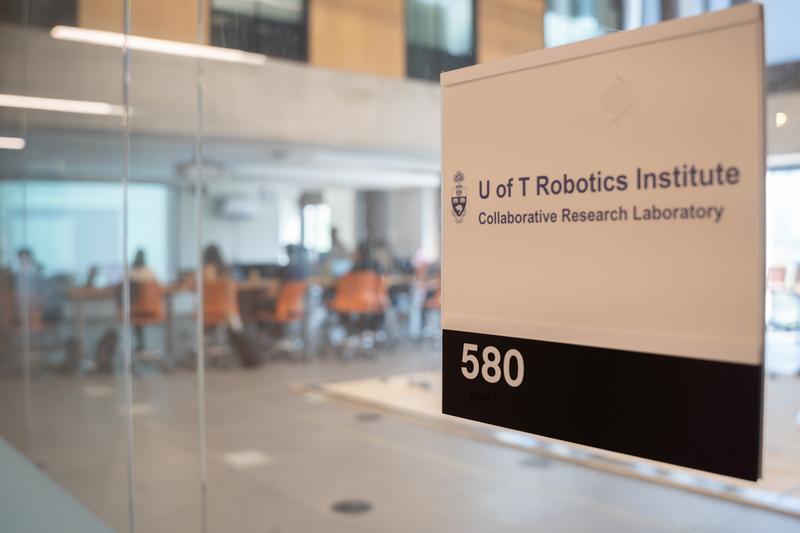
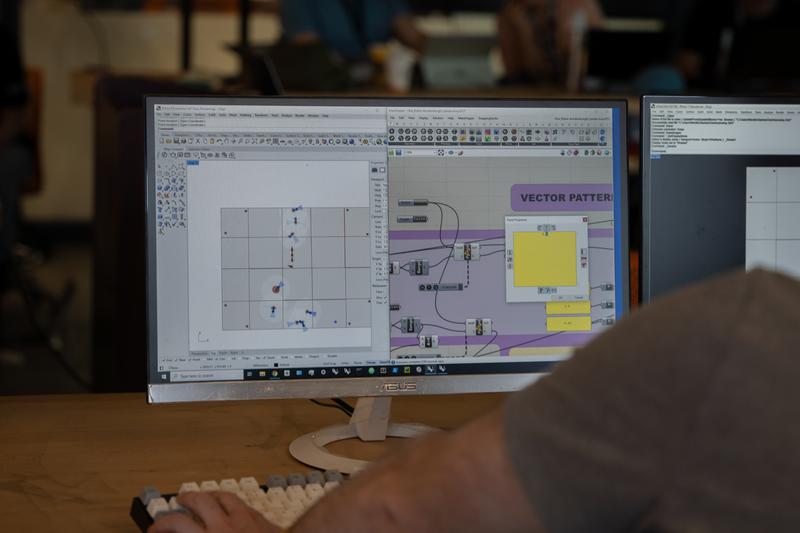
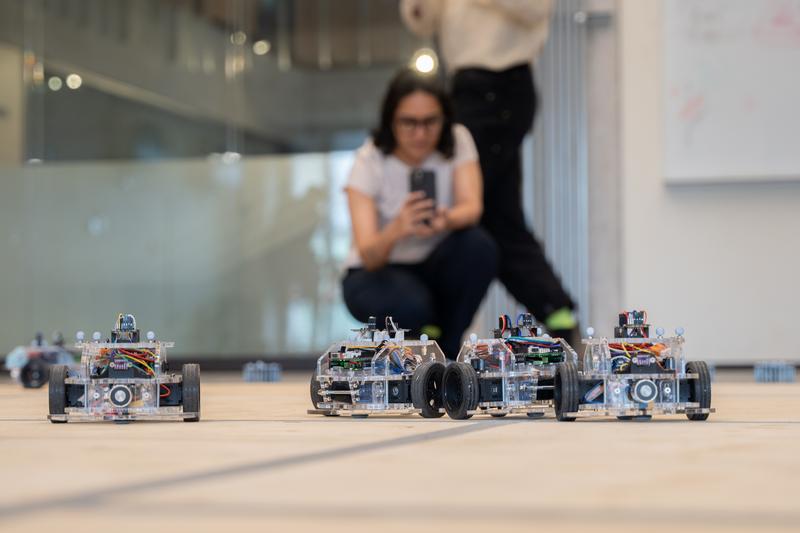
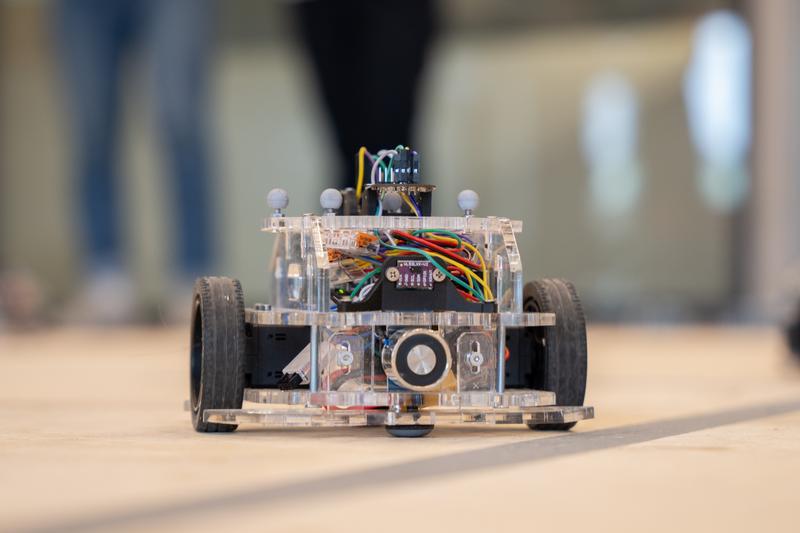
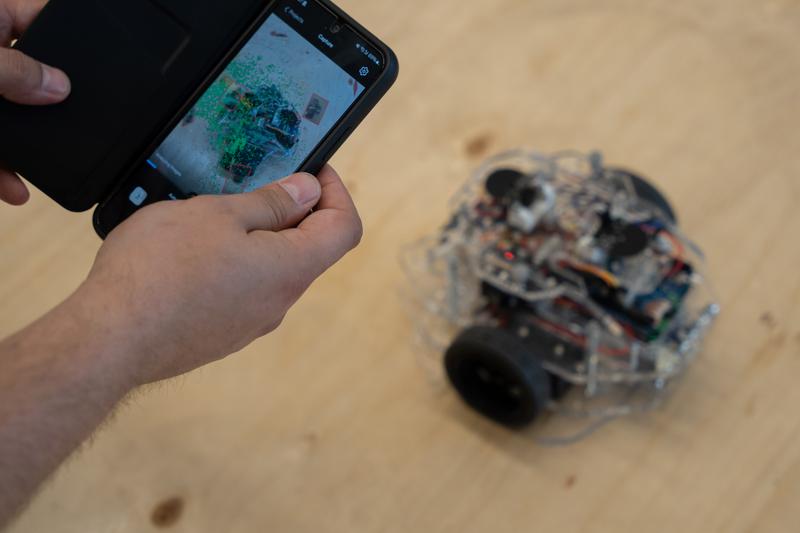
Collective robotic construction (CRC) is an emerging field of research that investigates how relatively small, mobile robots can collaborate in order to aid in construction processes. One major question in the development of CRC systems is their level of decentralization considering the large amount of machines that work together. This includes questions of:
- Whether the robots know about and can communicate with each other?
- Is the structure being assembled or worked on known by the robots?
- How much information do the robots have on their general construction environment?
This workshop tackled questions of decentralization in CRC by investigating two approaches to their modelling and control: agent‑based modelling and simulation (ABMS) and digital threads. Participants delved into the theoretical concepts of CRC, explored a software framework for experimenting with CRC—where mobile robots were modelled as agents with custom behaviours—and were introduced to a framework for design‑to‑fabrication processes based on digital threads. They worked digitally to evolve existing algorithms for CRC, learned how to program and control wheeled mobile robots using the ABxM framework and advanced communication methods, and gained hands‑on experience with local and global sensing techniques for mobile robots.
These tools and concepts were applied in the active implementation of a wheeled‑robot CRC system during the course of the workshop. By the end, participants were equipped with the knowledge to envision and implement the transformative potential of CRC.
